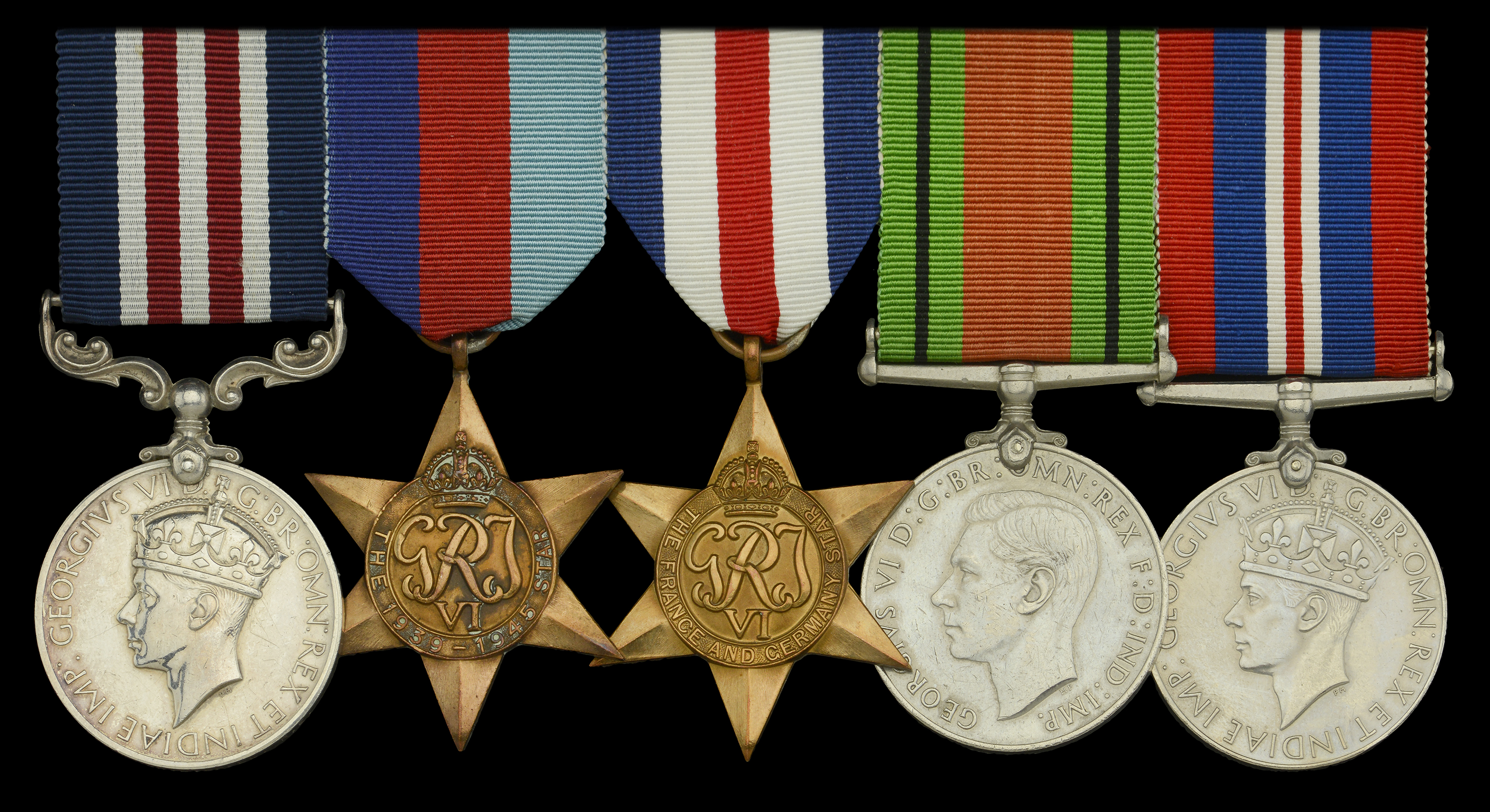A Second War immediate ‘Operation Berlin’ M.M. group of five awarded to Corporal D. Liddell, 204th Field Company, Royal Engineers, who as part of 43rd (Wessex) Division, XXX Corps, distinguished himself during the iconic night-time evacuation by boat of the remnants of the beleaguered 1st Airborne Division under Roy Urquhart, trapped in German-occupied territory north of the Lower Rhine and just West of Arnhem, 25/26 September 1944 Military Medal, G.VI.R. (2006847 A. Cpl. D. Liddell. R.E.); 1939-45 Star; France and Germany Star; Defence and War Medals 1939-45, very fine (5) £2,800-£3,200 --- Provenance: Glendinnings, May 1972 M.M. London Gazette 1 March 1945: ‘On 25 Sep., 1944 during the assault operation of relieving men supplying 1st Airborne Dv, Cpl. Liddell was in charge of 3 assault boats manned by his section. The whole operation was carried out under intense MG and mortar fire. In spite of his boats being holed and other crews being wounded he contrived to keep 3 boats in operation throughout. Cpl. Liddell only stopped when there were no more boats left, and his were out of action. Cpl. Liddell through his exceptional energy initiative and devotion to duty materially affected the quantity of men and supplies sent over to 1st Airborne Div.’ Douglas Liddell served during the Second World War with the 204th Field Company, Royal Engineers as part of the 43rd (Wessex) Division, XXX Corps. He distinguished himself during Operation Berlin - the iconic night-time evacuation of the remnants of the beleaguered 1st Airborne Division under Roy Urquhart, trapped in German-occupied territory north of the Lower Rhine and just West of Arnhem. On the night of 25-26 September 1944, Liddell took part in the execution of Brigadier Sir Mark ‘Honker’ Henniker’s (C.R.E. 43rd Division - whose medals were sold in these rooms in February 2024) intricate plan, and helped secure the rescue of some 2,400 men across the Lower Rhine, in all manner of boats and rafts. The 43rd Division had arrived at Driel on 23 September 1944, and after a disastrous attempt to relieve Urquhart’s men the following night, Henniker had been tasked with coming up with a plan. Swimmers got through and communicated it to Urquhart, and then they were on for the 25/26 September. The operation was to start at 22:00 on the 25th but the R.E. field companies tasked with carrying it out had left many hours earlier and moved through German positions to the south bank of the Neder Rijn. In dismal weather and under constant German machine gun, mortar, and artillery fire, the boats shuttled back and forth across the wide swift river through the night. The evacuation went on until daylight came and the operation was forced to cease. The surviving glider pilots had laid white tape through the woods for Urquhart’s men to follow, leading from the Perimeter, the grounds of the Hartenstein Hotel, to the north bank of the Neder-Rijn where the Royal Canadian Engineers and British Royal Engineers were waiting with small boats to ferry them across the Rhine to a landing point north of Driel. In all they managed to rescue approximately 2,400 airborne troops.
Auctioneer's Buyers Premium: 24% (+VAT)
There is an additional charge of 4.95% (+VAT/sales tax)
See Full Terms And Conditions





